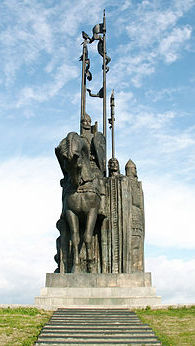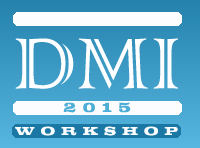Venue

DMI 2015 will be organized in Pskov (Russian: Псков), the administrative center of Pskov Oblast, located about 20 kilometers east from the Estonian border and 300 kilometers from St. Petersburg, on the Velikaya River.
Pskov is one of the oldest cities in Russia. The name of the city, originally spelled "Pleskov", may be loosely translated as "of purling waters". Its earliest mention comes in 903, which records that Igor of Kiev married a local lady, St. Olga. Pskovians sometimes take this year as the city's foundation date, and in 2003 a great jubilee took place to celebrate Pskov's 1,100th anniversary.
The first prince of Pskov was Vladimir the Great's youngest son Sudislav. Once imprisoned by his brother Yaroslav, he was not released until the latter's death several decades later. In the 12th and 13th centuries, the town adhered politically to the Novgorod Republic. In 1241, it was taken by the Teutonic Knights, but Alexander Nevsky recaptured it several months later during a legendary campaign dramatized in Sergei Eisenstein's 1938 movie.
In order to secure their independence from the knights, the Pskovians elected a Lithuanian prince, named Daumantas, a Roman Catholic converted to Orthodox faith and known in Russia as Dovmont, as their military leader and prince in 1266. Having fortified the town, Daumantas routed the Teutonic Knights at Rakvere and overran much of Estonia. His remains and sword are preserved in the local kremlin, and the core of the citadel, erected by him, still bears the name of "Dovmont's town".
(map)
